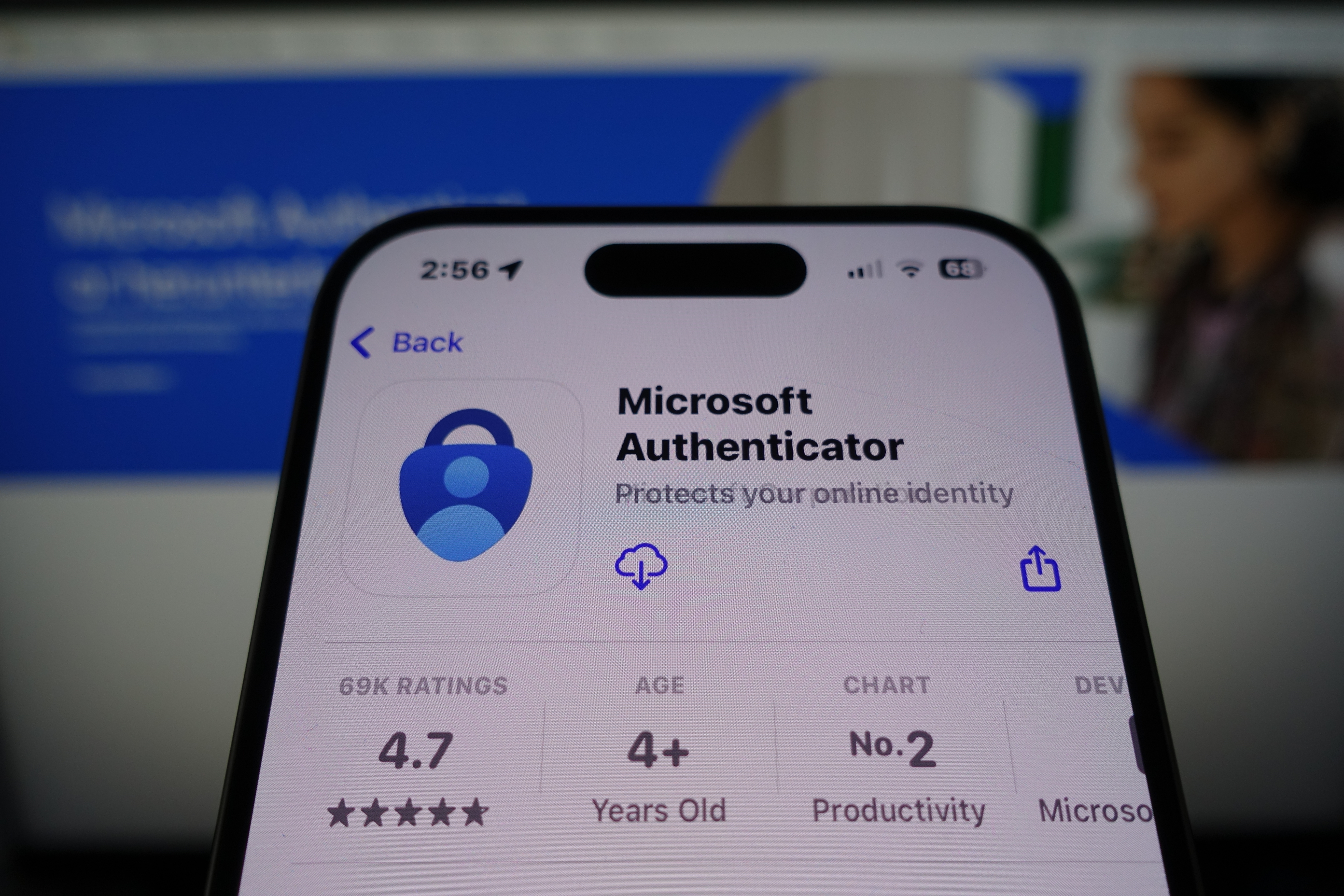Microsoft Authenticator begins password autofill phase out this week - so export now, or you could lose them forever
Microsoft is depreciating the autofill function

Sign up for breaking news, reviews, opinion, top tech deals, and more.
You are now subscribed
Your newsletter sign-up was successful
- Password autofill is being depreciated on Microsoft Authenticator
- Existing passwords will be synced through your Microsoft account
- Users need to export passwords, or switch to using Edge
Microsoft Authenticator will stop autofilling passwords from July 1, 2025 as the app’s capabilities are depreciated and key functions moved over to its Edge browser.
Microsoft Authenticactor has served many as an excellent free mobile authenticator app for logging in to Microsoft accounts, but now it is transferring the password autofill capabilities over to Edge.
“Autofill via Authenticator ends in July 2025,” the app now warns, “You can export your saved info (passwords only) from Authenticator until Autofill ends. Access your passwords and addresses via Microsoft Edge at any time. To keep autofilling your info, turn on Edge or other provider.”
Time to export passwords
The current timeline for phasing out Microsoft Authenticator’s password autofill capabilities is as follows:
- From June 2025, you will no longer be able to save new passwords in Authenticator
- From July 2025, the autofill function will stop working
- From August 2025, your saved passwords will no longer be accessible in Authenticator
If users wish to continue using the autofill capability for their Microsoft accounts, the application now shows a “Turn on Edge” button that directs the user to enable Edge as their new password autofill app.
Fear not, your passwords are synced with your Microsoft Account meaning that they will still be fully accessible through Edge if you forget to export them before the Microsoft Authenticator autofill function is depreciated.
Microsoft seems to be taking the opportunity to drive adoption of the Edge browser, which, according to statcounter, currently holds a global market share of just 5.2%, with Google holding a commanding share at 66.19%.
Sign up to the TechRadar Pro newsletter to get all the top news, opinion, features and guidance your business needs to succeed!
Karolis Arbaciauskas, head of business product at NordPass, said, “Microsoft's decision to phase out password management from Authenticator represents a significant shift in the company's approach to digital security. It seems like Microsoft is simplifying credential management across different devices and bringing password management logic closer to the market-dominant model, which is already familiar to many users.”
“In addition, the company has a chance to increase the popularity of its browser. In theory, it’s a win-win situation. But people have various personal likes and dislikes, are often used to a particular ecosystem or a browser and may not wish to move. In that case, a dedicated password management solution might be a good idea since it can provide cross-platform synchronization across multiple browsers and devices, secure storage for credentials, and features like breach monitoring and encrypted sharing,” Arbaciauskas concluded.
Users who have enjoyed the functionality of Microsoft Authenticator may also want to take a look at the best authenticator apps to seek a replacement.
You might also like
- These are the best password manager for families
- I've rounded up the best antivirus software
- Microsoft authentication system spoofed via phishing attack

Benedict has been with TechRadar Pro for over two years, and has specialized in writing about cybersecurity, threat intelligence, and B2B security solutions. His coverage explores the critical areas of national security, including state-sponsored threat actors, APT groups, critical infrastructure, and social engineering.
Benedict holds an MA (Distinction) in Security, Intelligence, and Diplomacy from the Centre for Security and Intelligence Studies at the University of Buckingham, providing him with a strong academic foundation for his reporting on geopolitics, threat intelligence, and cyber-warfare.
Prior to his postgraduate studies, Benedict earned a BA in Politics with Journalism, providing him with the skills to translate complex political and security issues into comprehensible copy.
You must confirm your public display name before commenting
Please logout and then login again, you will then be prompted to enter your display name.